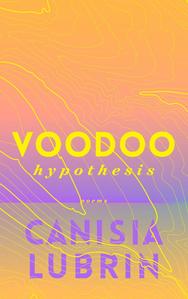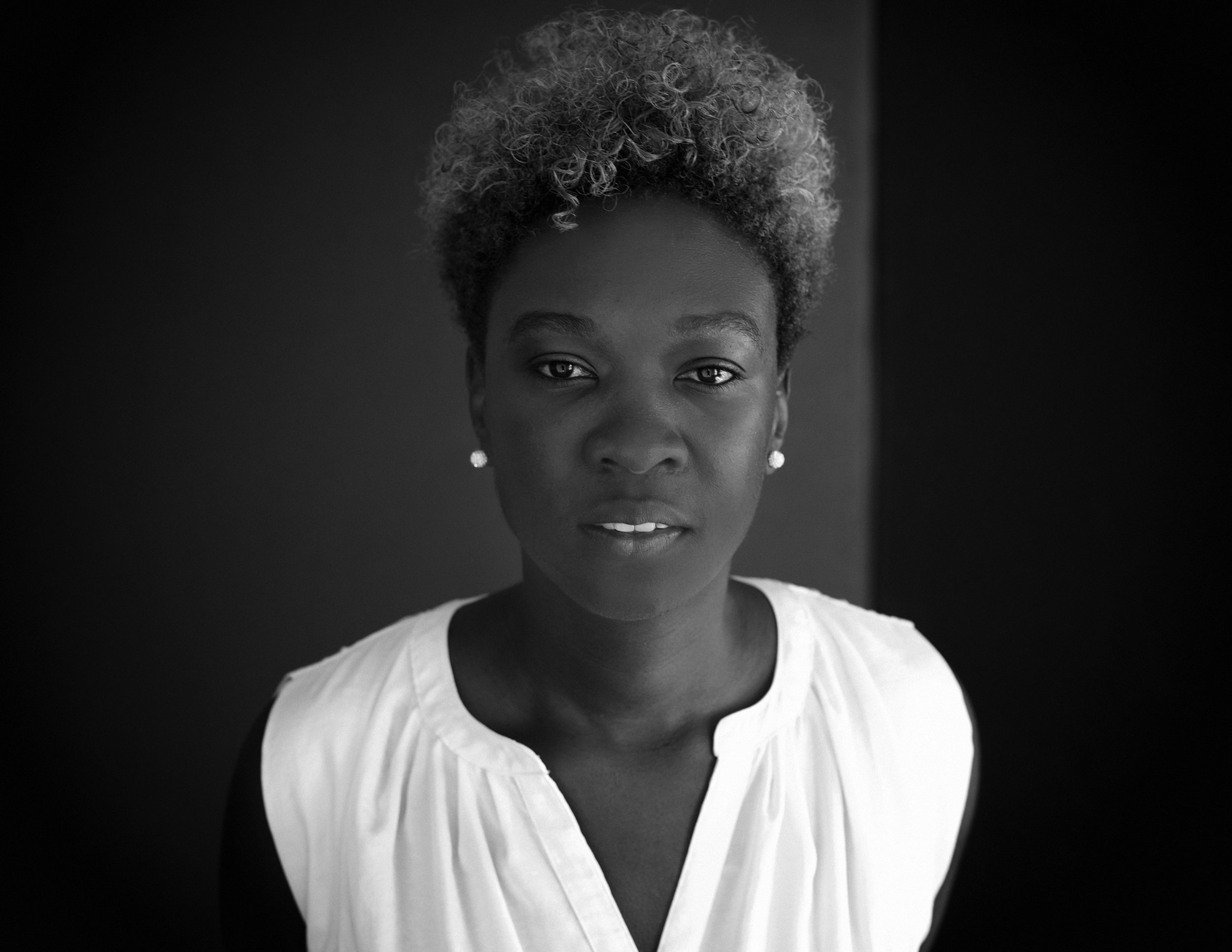A series in which Isabella is excited about everything that is happening at Growing Room 2019, so she sat down with some festival authors to hear about their work, and what events they are most excited to take part in.
A series in which Isabella is excited about everything that is happening at Growing Room 2019, so she sat down with some festival authors to hear about their work, and what events they are most excited to take part in. Learn more about the 2019 Growing Room festival by visiting our website, festival.roommagazine.com.
Photo credit: Anna Keenan
Canisia Lubrin, editor, critic, educator, and awards-nominated cross-genre writer of Voodoo Hypothesis (2017), has contributed to journals, anthologies, TV, radio, festivals and stages on four continents.
ROOM: Hello, Canisia, how are you? I’m so glad to be joining you here, in this space! I hear that you are working on a new poetry collection, is that right? How does it feel writing it this time around, as opposed to your first book, Voodoo Hypothesis? Do you feel a bit more grounded, having been through the process once?
CL: Hey, Isabella, nice to see you, too. Are you well? I know you have a lot going on right now with your fantastic work for the Growing Room Fest.
You hear right. I am at work on another book of poetry and I do feel I have a better grasp of things only because I have now progressed far enough that I know what it is. In the beginning, I experienced a similar degree of alienation or defamiliarization that I did with writing Voodoo Hypothesis. I suppose the strangeness of the first experience isn’t quite present this time around, but it still feels like tearing through a particular kind of darkness. One that privileges the work of shadow and light because entering the writing process of poetry often feels like trusting something I won’t quite understand until I get to the other side of it.
ROOM: I would love to hear more about the keynote that you are presenting at Growing Room, sort of as a grand finale to end the festival. What have you got planned? Call it a teaser, if you will.
CL: The only teaser I am willing to offer you is the title: The Space Between Words.
ROOM: I’d love to know where you turn to for inspiration — favourite writing spot? favourite books or work that you return to time after time? other writers? Give them a heartwarming shoutout, if you will!
CL: I have a lot of trouble thinking in terms of “the favourite thing”. I’ve never done well in that mental space because I trust, perhaps too much, that the right (or needed) thing at the right time is more real and unknowable. But all my praises go out to the one and only Dionne Brand. I wouldn’t be at this work if not for the work she’s done and continues, so brilliantly, to do. Also, high praise to Toni Morrison. To Christine Sharpe and Saidiya Hartman and Rinaldo Walcott and Patrick Chamoiseau and Safiya Sincalir and Vladimir Lucien and Alicia Elliot, Chelene Knight, Chantal Gibson, and Whitney French, Philip Morgan, Simone Schwarz-Bart, David Chariandy . . . so many more.
ROOM: As a young writer, I’m always interested to hear others’ stories. How did you come to writing? When did you know? Who were the people/mentors that helped you get here?
 CL: I’ve answered this elsewhere: My grandmother was my earliest hypewoman and my earliest teacher, even though she may not have realized it. Her stories and songs and tales are a bright light even still. I have a small, hugely, unimaginably brilliant group that I think and talk with. I have the greatest mentors in the whole universe and I eh at all being hyperbolic. So the road to: I think I always knew I was a writer. My love for story and language is bound up in some of my earliest memories. Did I believe it, is the real question. The late Priscila Uppal was greatly encouraging, as were teachers, Michael Helm, Jennifer Duncan. I don’t think I have a story that fits any “normal” route to writing even though I studied it throughout university. There’s the old perseverance in the face of cycles of rejection and the long work of learning craft when you have a life as various and meandering as mine. Shout-out to Paul Vermeersch, always, for taking a chance on my first book.
CL: I’ve answered this elsewhere: My grandmother was my earliest hypewoman and my earliest teacher, even though she may not have realized it. Her stories and songs and tales are a bright light even still. I have a small, hugely, unimaginably brilliant group that I think and talk with. I have the greatest mentors in the whole universe and I eh at all being hyperbolic. So the road to: I think I always knew I was a writer. My love for story and language is bound up in some of my earliest memories. Did I believe it, is the real question. The late Priscila Uppal was greatly encouraging, as were teachers, Michael Helm, Jennifer Duncan. I don’t think I have a story that fits any “normal” route to writing even though I studied it throughout university. There’s the old perseverance in the face of cycles of rejection and the long work of learning craft when you have a life as various and meandering as mine. Shout-out to Paul Vermeersch, always, for taking a chance on my first book.
ROOM: Speaking of mentors, I hear that you have been involved in a lot of mentoring yourself. Would you like to speak more to that, and what mentoring means to you?
CL: I think of mentoring as a collaboration that privileges the person in need of the most learning. And that means a lot of listening and a sharpening of one’s attention to, not just the mentee, but to the world. It is important to establish both the immediate and extended context of that mentorship through the extended life of the work the mentee brings to the table. It is always about what is possible, what has not been realized. The great gift of mentorship is that everyone involved will be at the center of confronting that unknown if it is done right.
ROOM: We have you featuring in several panels including The Might of the Pen: Writing as a Political Act, and you will also be presenting your keynote. But tell me, what are some other events that you are most keen on attending?
CL: Those two you mention, for sure. I have not had a moment to peruse the calendar if you can believe my life.
ROOM: Thanks for taking the time to sit down with me, Canisia. I’m so excited to have you for Growing Room 2019!
CL: Thanks, Isabella. See you soon.














